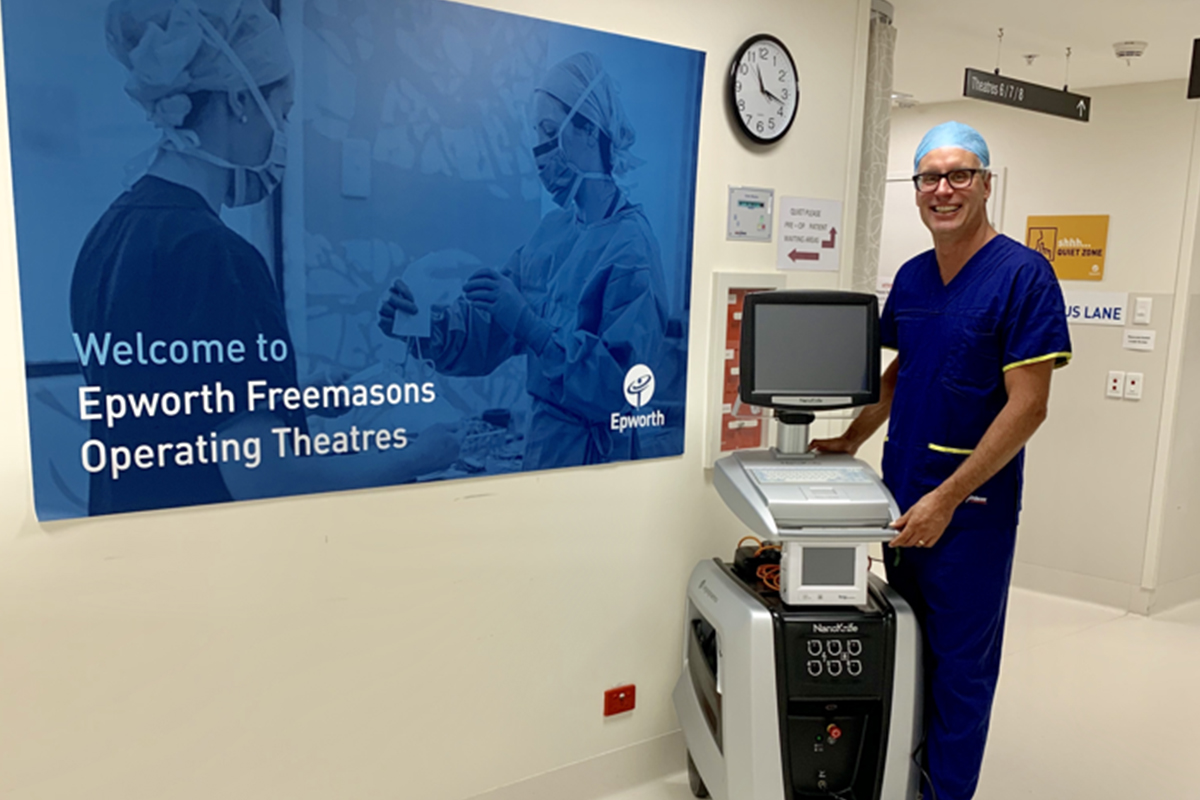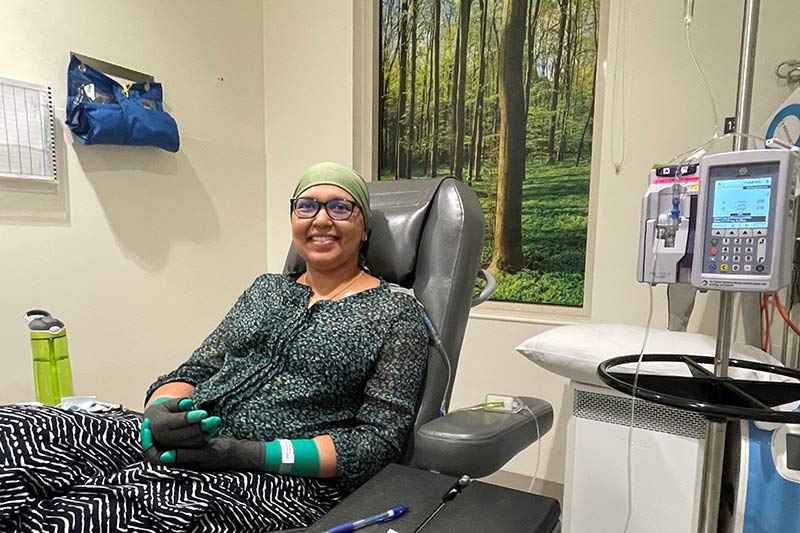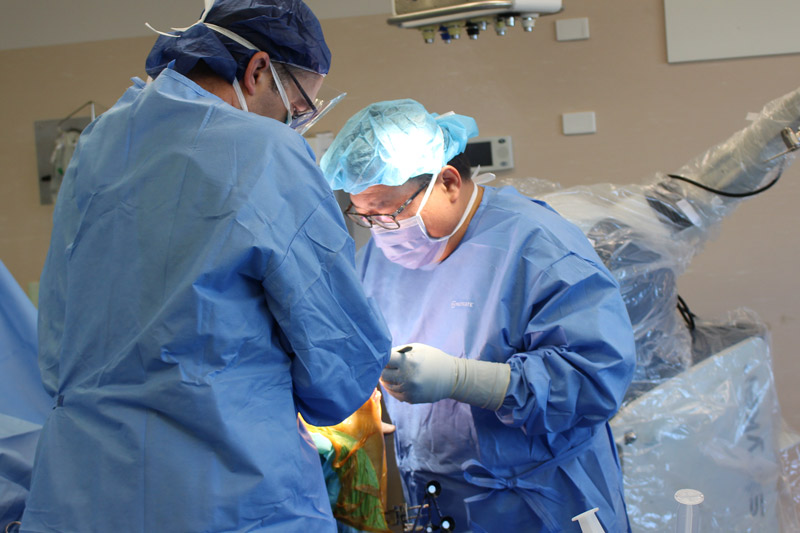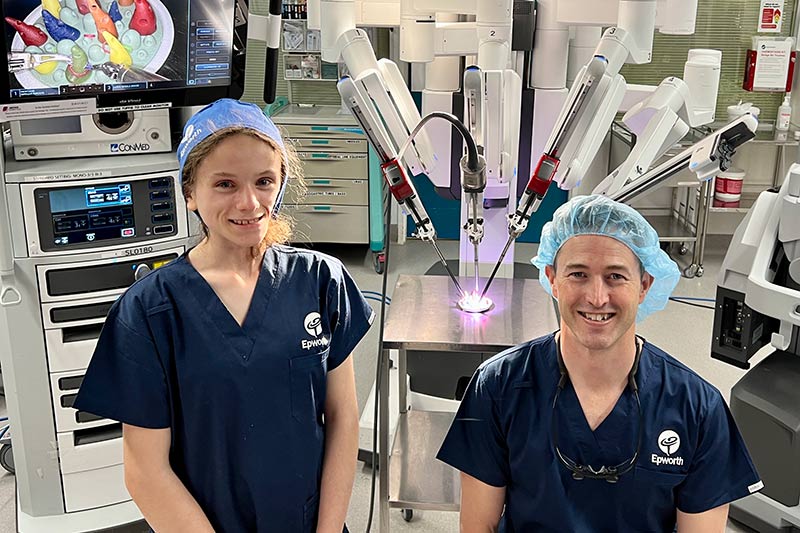Donations help purchase state-of-the-art equipment, ensuring our patients receive the best and most recent medical equipment to treat their illnesses, at all times.
Thanks to the generosity of our donors, patients with prostate, liver and pancreatic cancer now have access to minimally invasive treatment following the launch of Irreversible Electroporation (IRE), also called NanoKnife, enabling treatment of cancerous tumours that were previously inoperable or difficult to reach.
With IRE, a surgeon can carefully use real time imaging via ultrasound (or MRI) while their patient is under general anaesthetic to guide several thin electrodes, (or NanoKnife), into the cancerous tumour.
The needles are strategically placed at points around the perimeter of the tumour and, when activated, the IRE system sends electrical pulses or currents between each set of needles to puncture permanent nanometre-sized holes into the tumour. This process causes the cancer cells to become unbalanced and triggers a cell “suicide” thereby destroying the tumour.
Associate Professor Laurence Harewood has used the NanoKnife to treat prostate cancers that are small and localised but still require treatment. He explained, “The NanoKnife allows us to focus just on the tumour, and unlike other treatments, it does not cause damage to surrounding structures such as the nerves, urethra and sphincter muscles. It’s a treatment that only kills the cancer cells, leaving the surrounding structures undamaged.”
“I’ve recently treated older men with localised prostate cancer where a full removal of the prostate would have been too invasive. The NanoKnife allowed me to perform minimally invasive therapy and we’ve seen excellent outcomes to date,” said Associate Professor Harewood.
I’m so grateful to you, the Epworth donors, who make it possible for us to have new and cutting edge technology, ensuring our patients receive the best possible treatment and care.





